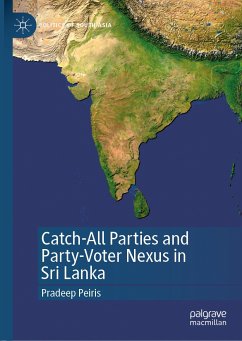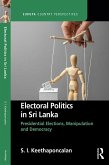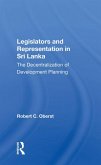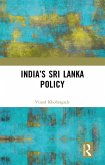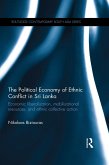This book systematically maps the evolution of the party-voter nexus of the United National Party (UNP) and Sri Lanka Freedom Party (SLFP). In doing so, it argues that these parties rely mostly on a complex Web of patronage-based networks to mobilise electorates. They employ informal and highly dynamic, loosely knit networks as their organisational structures at the local level. They mainly focus on mobilising voters through local political actors rather than maintaining clear party bases and membership schemes. The study highlights the salience of personalities at the national as well as local levels in forming electoral support for the parties. These individuals exploit their economic, social, and cultural capital to mobilise the most efficient network that would strengthen their party during elections. The study also analyses the emergence of two new coalition centres from within these traditional parties, the Sri Lanka Podujana Peramuna (SLPP) and Samagi JanaBalawegaya (SJB), and argues that these parties, though portraying themselves as new, have in fact retained the overall logic of the party-voter nexus by appropriating the organisational schemes and structures of their predecessors.
Pradeep Peiris is Senior Lecturer at the Department of Political Science and Public Policy, University of Colombo, and Treasurer, Social Scientists' Association, Sri Lanka. He was Founding Head of Social Indicator, Survey Research Arm of the Centre for Policy Alternatives and is currently the Sri Lanka Country Representative of Democracy Barometer.
Dieser Download kann aus rechtlichen Gründen nur mit Rechnungsadresse in A, B, BG, CY, CZ, D, DK, EW, E, FIN, F, GR, HR, H, IRL, I, LT, L, LR, M, NL, PL, P, R, S, SLO, SK ausgeliefert werden.

